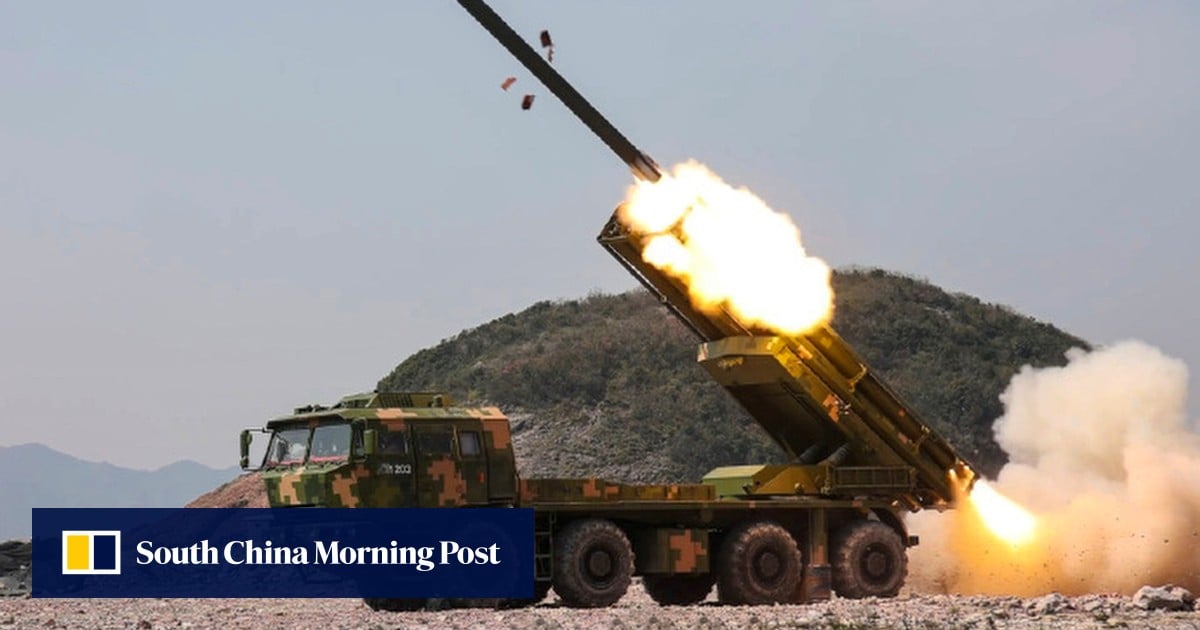Chinese Defense Stocks Affected by Trump’s Tariffs, Undermining DeepSeek-Driven Gains

Rising Interest in Chinese Military Stocks
As geopolitical tensions between the United States and China continue to escalate, investors are increasingly turning to Chinese military stocks. This strategy arises in response to a deteriorating trade relationship marked by reciprocal tariffs implemented by former President Donald Trump. The significant gains observed from the DeepSeek trade are gradually diminishing, prompting investors to seek stability in the defense sector.
Performance of Defense Stocks
The impact of this shift is evident in the stock performance of various defense-equipment companies. In Hong Kong and mainland markets, several military firms are experiencing substantial gains:
- CSSC Offshore & Marine Engineering: Stock price surged by 16% to HK$9.56 on one Wednesday, following an 8.3% increase the previous day.
- AviChina Industry & Technology: This company saw its stock rise by 8%, bringing the price to HK$3.37.
- China Harzone Industry: In Shenzhen, this stock jumped 20% to 8.28 yuan.
- Xian Triangle Defense: Also in Shenzhen, shares climbed by 11%, reaching 23.90 yuan.
These figures highlight a pronounced interest in investment towards military-related companies, in stark contrast to broader market volatility characterized by declining stock prices in other sectors.
Broader Market Trends
Recent fluctuations in the stock market, including the Hang Seng Index briefly slipping into a bear market after a 20% drop from its March high, underscore the ongoing turbulence in global markets. The decline has overshadowed earlier gains in the Chinese tech sector that were triggered by the DeepSeek trade discussions.
Analysts point out that the military industry is becoming a reliable hedge amid this uncertain economic climate. Shi Kang from Industrial Securities states, “The military industry is providing stability against the backdrop of turbulence in global markets. As global trade and the geopolitical landscape worsen, demand for weapons procurement will rise significantly.”
Historical Resilience of Defense Stocks
Historically, defense stocks have shown resilience during periods of turmoil. Past instances, such as the U.S.-China trade war in 2018 and the COVID-19 pandemic in 2020, have demonstrated how military-related investments can outperform the broader market during challenging times. This trend suggests that political conflicts and global uncertainties can positively influence the defense sector’s performance.
Factors Contributing to Growth in Defense Stocks
Several factors are contributing to the rising interest in military stocks and their increasing valuations:
- Increased Geopolitical Tensions: Heightened tensions between two major global powers can spur government spending on defense.
- Growing Military Budgets: Many nations are expanding their defense budgets as a response to perceived threats, thus driving demand for military technology and equipment.
- Investor Diversification: Investors often seek stable returns during uncertain times, leading them to explore sectors like defense, which traditionally weather economic downturns better than others.
Conclusion
The focus on Chinese military stocks illustrates how investors adapt to evolving geopolitical landscapes. As tensions continue to shape the economic outlook, military-related investments are likely to play a vital role in many investment portfolios, reflecting a broader strategy aimed at mitigating risks in tumultuous markets. The robust performance of these stocks signals a shift in investor sentiment towards sectors that promise stability amidst global uncertainties.




